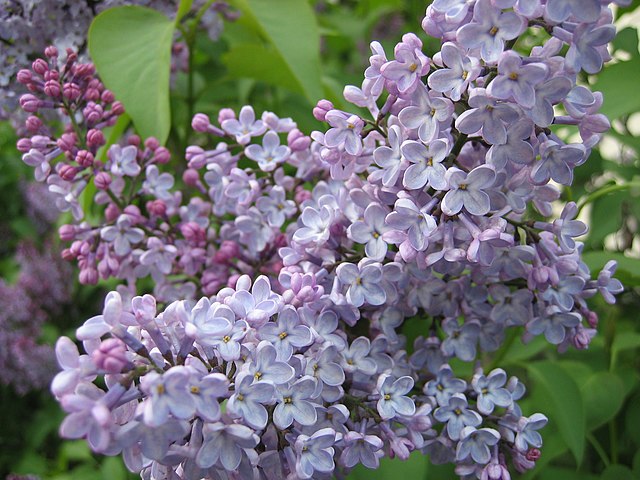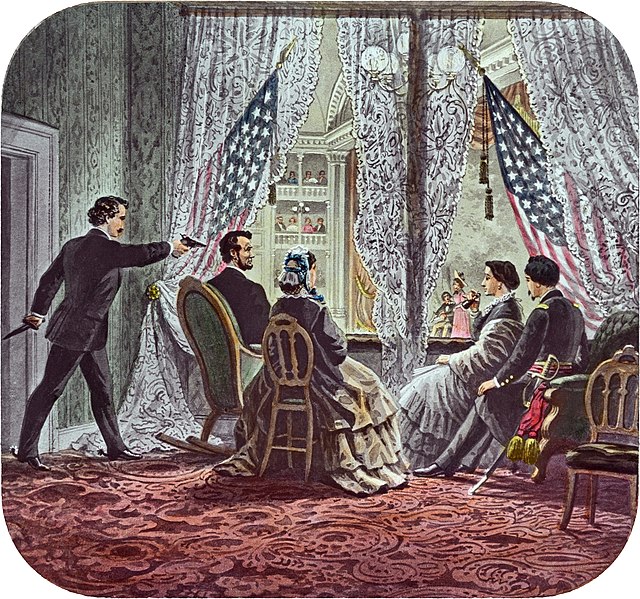When Lilacs Last in the Dooryard Bloom'd
"When Lilacs Last in the Dooryard Bloom'd" is a long poem written by American poet Walt Whitman (1819–1892) as an elegy to President Abraham Lincoln. It was written in the summer of 1865 during a period of profound national mourning in the aftermath of the president's assassination on 14 April of that year.
The poem's first page in the 1865 edition of Sequel to Drum-Taps
Common lilac (Syringa vulgaris)
Shown in the presidential booth of Ford's Theatre, from left to right, are assassin John Wilkes Booth, Abraham Lincoln, Mary Todd Lincoln, Clara Harris, and Henry Rathbone
Lilac flowers and heart-shaped leaves
Walter Whitman Jr. was an American poet, essayist, and journalist. He is considered one of the most influential poets in American literature. Whitman incorporated both transcendentalism and realism in his writings and is often called the father of free verse. His work was controversial in his time, particularly his 1855 poetry collection Leaves of Grass, which was described by some as obscene for its overt sensuality.
Whitman in 1887
Whitman in July 1854, aged 35, from the frontispiece to Leaves of Grass from a lost daguerreotype by Gabriel Harrison
Whitman's handwritten manuscript for "Broadway, 1861"
Whitman spent his last years at his home in Camden, New Jersey, which is open to the public as the Walt Whitman House.








